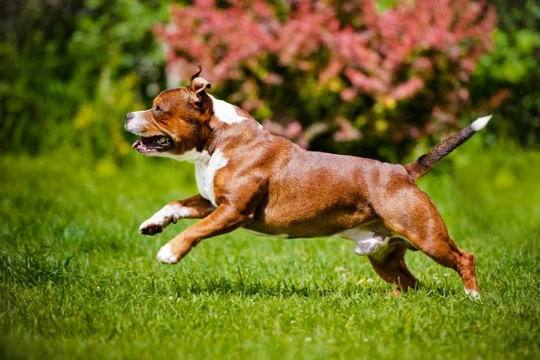
Controlling a Dog's Reactivity to Other Dogs
Owning a reactive dog can often mean stressful walks that can get you into a bit of trouble with people you walk by and other dog owners. It's a common problem that many people have to deal with and which trainers find they have to help owners get through so taking a dog for a walk is a joy and not something that's dreaded.
Reactive dogs can be a handful and there are certain breeds which tend to be more so than others. A survey carried out in New Zealand showed that some breeds known to be reactive were that much harder to train too which means they are not the best choice for first time dog owners.
There are Legal Implications
Apart from making life really hard for their owners, there's the legal implications to consider should a dog attack and injure another dog. This is why any tell tale signs need to be identified and dealt with as early as possible. The signs to watch out for could be anything from your dog being unhappy around strange dogs and going on the defensive to outright aggressive behaviour whenever they see or are near another dog.
If your dog injures another dog, you could be held liable for the vet bills incurred which could run into hundreds of pounds. If the people want to take the matter to the police, they would be perfectly within their rights to do so which is something else you need to bear in mind because although rare, it could lead to a civil claim or even worse, criminal prosecution.
Prevention is Easier than Cure
It goes without saying that prevention is easier than trying to cure this type of behaviour which is true of any unwanted behavioural problems commonly seen in dogs. This means ensuring that puppies and young dogs are well socialised so they grow into well balanced and happier adults. It's the only way to make certain a dog grows up to be friendly and sociable towards other dogs and people.
Breeds known for their reactivity to other dogs need extra socialisation when they are young and this includes the following:
- Terrier Breeds
- Breeds typically used as watch dogs
- Herding breeds
- Working breeds
All dogs need to be well socialised during their puppy-hood but they also need to be trained to focus on their owners no matter what situation they find themselves in. The fact a dog is fully focused on their owners means they should ignore any strange dogs they encounter when out on a walk. This is an essential for breeds known to be reactive or nervous when around other dogs.
A Limited Time to Socialise Puppies
The thing to bear in mind if you decide to get a puppy, is that you have a very limited amount of time when it comes to socialising them, with some breeds having a very narrow window to do this in. Breeders need to be very proactive with their puppies ensuring they are introduced to other dogs. This allows them to learn the social canine skills needed to get them through the rest of their lives.
A reputable dog breeder will ensure they follow programmes like the one developed by the Kennel Club and Dogs Trust namely The Puppy Socialisation Plan which makes sure the puppies they rear are far less likely to be reactive. However, once the puppy arrives in their new home, owners need to continue the good work. It is not enough to have one or several other dogs in the home as this does not constitute socialising"" a puppy or young dog.
Finding a Good Puppy Class is Crucial
There are many ""puppy classes"" popping up all over the country. However, you need to make sure the one you decide to enrol into offers a professional approach and this means having an expert dog trainer and behaviourist running the classes. For first time dog owners this is essential because puppies need to be well matched in each and every class which ensures that everything is kept under control.
Understanding a Dog's Behaviour is Essential
It's really important to understand that aggressive behaviour is often initially triggered by fear. When dogs are on leads, they are effectively often forced into what they perceive as confrontational situations and as such this triggers a natural instinct in them called a ""flight or fight"" response.
Most dogs will choose the ""flight"" option, but a reactive dog is more likely to stand their ground and fight. The following breeds are known to be a lot more reactive than others:
- Pomeranian
- Yorkshire Terrier
- Maltese Terrier
- Weimaraner
- Cocker Spaniel
- Boston Terrier
- Pekingese
- Lhasa Apso
- Pug
It's really important for owners with dogs that react aggressively to other dogs to nip the problem in the bud because if their pet gets to do it too often, they get particularly ""good"" at it which makes it that much harder to cure.
Conclusion
Reactive dogs tend to confront other dogs when out on a walk which could lead to all sorts of problems. If your dog injures another dog, you could get in trouble with the law and you may even have to pay out hundreds of pounds in vet bills both for your dog and the one that was attacked and injured. It is far better to seek help from a professional trainer who would be able to solve the problem that much easier and teach your dog to behave nicely around other dogs.
""



